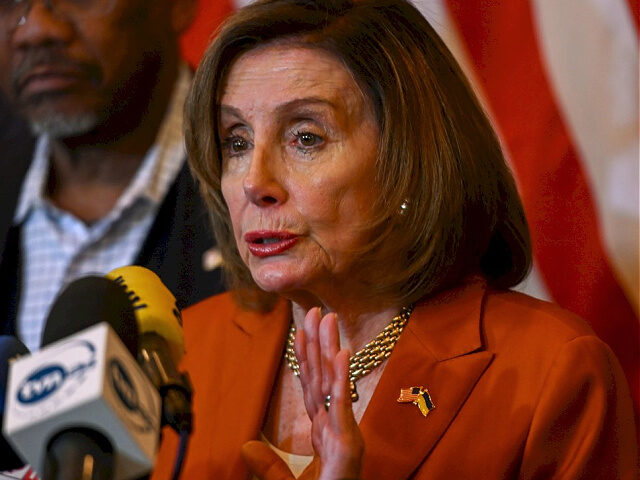The progressive organizations Fight for the Future and Public Knowledge, along with the ACLU with over 25 other organizations have launched a last-minute push to stop the Journalism Competition and Preservation Act (JCPA), urging Speaker Nancy Pelosi not to pass a handout for media conglomerates and their hedge fund owners.
The move comes amid moves from lawmakers to attach the JCPA to the National Defense Authorization Act (NDAA), a “must pass” bill to authorize funding of the U.S. military.
The JCPA has nothing to do with national defense, and adding it to the defense bill is tantamount to playing games with American national security. Still, media lobbyists are determined to get the provisions of the JCPA into law, which will establish a gravy train from Silicon Valley to the media industry, transferring wealth from one set of wealthy, unaccountable corporations to another.
“We have joined 25+ orgs in demanding the awful #JCPA not be included in the NDAA,” said the official account of Fight For The Future in a tweet.
“JCPA is a handout to hedge funds that will harm local news and force social media to carry + PAY FOR hateful content. Speaker Pelosi needs to put her foot down!”
Progressive organizations joined center-right nonprofits, including the Niskanen Center and R Street Institute to oppose the attempt to latch the JCPA onto the NDAA, pointing out that the benefits of the JCPA will go to large media conglomerates and big broadcasters, not frontline journalists.
In their open letter, which can be read in full here, the organizations painted the JCPA as what it is — corporate welfare for large media conglomerates and their hedge fund owners.
From the open letter:
Large media conglomerates can dominate negotiations, and small outlets would be unheard if not hurt. Despite claims that the bill is ‘designed to benefit small and local publishers exclusively,’ a publisher employee cap of 1,500 would exclude only the nation’s three largest newspapers from participating in negotiations (and as noted below, the cap doesn’t apply to broadcasters at all).
The cap could also create unintended consequences such as layoffs or transitions to more part-time or freelance employees, which denies journalists any benefits. The “one publisher, one vote” provision for negotiating entities underplays the forms of soft power large conglomerates with brand-name news outlets can bring to the negotiations. In fact, the bill encourages — and may help fund — more consolidation among both newspapers and broadcasters.”
Not only are broadcasters now included, the bill favors big ones. In fact, the JCPA favors big broadcasters such as News Corp, Sinclair, iHeart and Comcast/NBCU over any other form of journalism, and it undermines the stated goal of helping local news. The bill’s 1,500-employee cap does not apply to broadcasters, so it won’t keep the largest broadcasters in the United States from benefiting from what is framed as intended to help local journalism. Although the bill purports to exclude television networks as beneficiaries, it explicitly excludes from the definition of “television network” any network station “owned and operated” by a network. And the bill applies to all radio licensees, so again the largest group owners will benefit without any enforceable requirement that they invest in local programming. The bill further privileges large
group owners by permitting individual licensees to each count as individual members of joint negotiating entities — each therefore receiving one vote despite their common ownership and control. The owners will therefore control the governance of these entities and take the lion’s share of revenue.As reported by the Senate Judiciary Committee, the bill has no provisions requiring that funds gained through negotiation or arbitration will even be paid to journalists. (The House Judiciary Committee may have been considering amendments that attempt to create accountability for how funds are spent, but since they don’t preclude transfers of funds within news organizations they would be meaningless.) We also note that the bill still creates “collective bargaining” rights for some of the same news organizations that are actively denying their own journalists the same rights.
The letter is further evidence of bipartisan opposition to the JCPA. Conservatives have objected to the bill’s potential to deepen the corrupt relationship between the media industry and Big Tech, which the former can leverage to censor its competitors.
The left, meanwhile, points out that the bill is simply a transfer of wealth to an industry that is already vastly wealthy and powerful: the media. There is no evidence that frontline journalists will benefit at all from the bill, which is why the bosses of media unions also oppose it.
Allum Bokhari is the senior technology correspondent at Breitbart News. He is the author of #DELETED: Big Tech’s Battle to Erase the Trump Movement and Steal The Election.

COMMENTS
Please let us know if you're having issues with commenting.